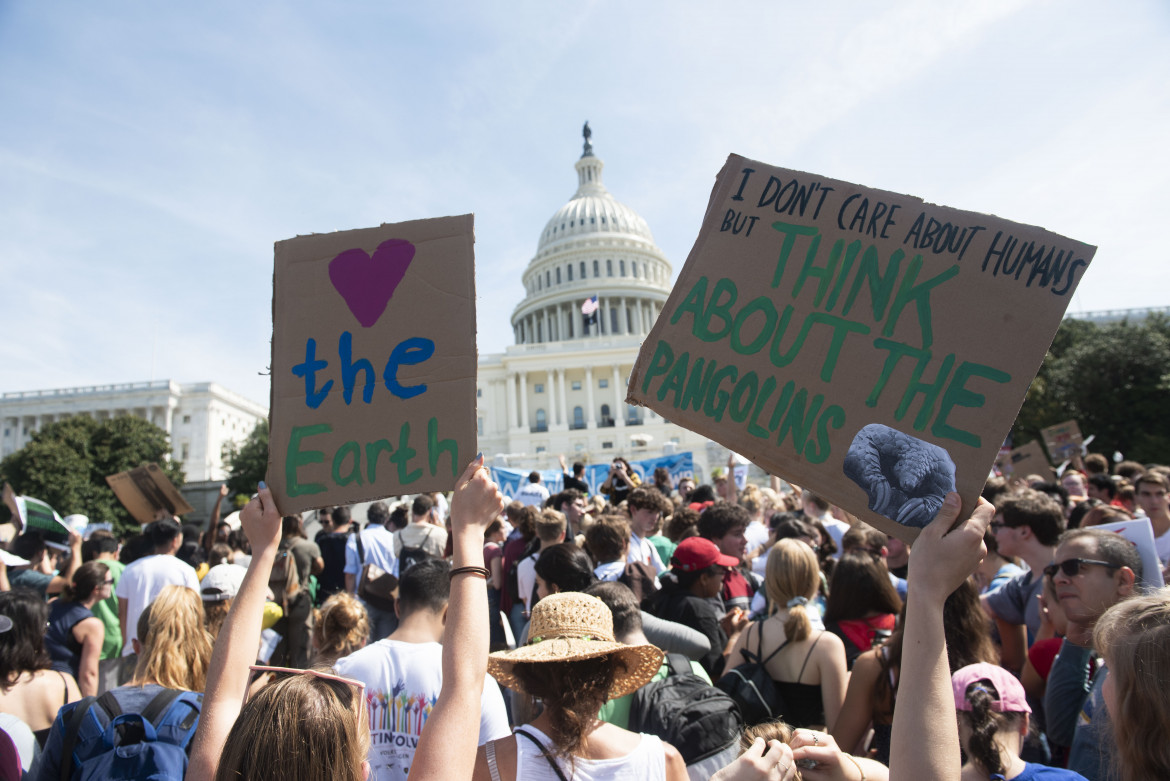Analysis
Biden puts the climate in focus – will he deliver?
After Trump brought us to the precipice, the new administration's plan is ambitious. However, there are signs of a countertrend, such as the appointment of Mr. Monsanto to agriculture.

From their first day in office, President Joe Biden and Vice President Kamala Harris have shown they are serious about the climate. Biden signed an executive order to reenter the Paris Climate Agreement, revoked the federal permit for the Keystone XL pipeline, and set out on a path—inevitably a long one—to reverse four years of environmental rollbacks under the Trump administration. The U.S. will re-enter the Paris Agreement on February 19, 107 days after leaving it. Then, Biden appointed Gina McCarthy, an Obama-era Environmental Protection Agency (EPA) expert, as the head of domestic climate policy, and John Kerry, the former Secretary of State, to serve as climate envoy.
So far, Biden’s actions on the climate issue are in line with his promise: that the climate crisis would be a priority, along with systemic racism and the pandemic—to such an extent that, according to some commentators, Biden could become known as The Climate President. On the White House website, for the first time in four years, climate appears listed among the government’s immediate priorities.
It’s true, Biden’s actions on the environment are still significantly short of what activists would like and what the fossil fuel lobby fears: a federal ban on fracking. Not to mention the appointment of Tom Vilsack, “Mr. Monsanto,” to head the Department of Agriculture, which is worrying.
However, one cannot deny this: the Biden-Harris climate plan is ambitious. As President, Biden is giving assurance that the U.S. will achieve a 100 percent clean energy and net zero emission economy no later than 2050. The policy line will be to invest in clean energy and scientific research and to incentivize the implementation of climate energy innovations, especially in the hardest-hit communities. Special attention will be given to communities disproportionately affected by pollution and the climate emergency, the lowest-income communities and communities of color.
The Biden-Harris plan will thus follow a path that joins together the issues of the climate emergency and structural racism, and frames the climate crisis as a social justice issue as well as an environmental one. According to the announcement, the plan will not only ensure that communities across the country—and particularly vulnerable communities like Flint, Michigan—have access to clean and safe drinking water, but will ensure that climate solutions are the result of an inclusive, community-driven process.
Something that will be a drastic turning point—if Biden’s words are followed up by action—will be a firm stand against the abuses of power by the “Big Polluters.” The administration said it would act against fossil fuel companies and other polluters who “put profit over people” and who “knowingly harm our environment” by poisoning the air, water and land and hiding information about the potential environmental and health risks of their activities. The President’s platform has included the provision that Biden for President, his election campaign, would not accept any contributions from oil, gas and coal corporations or executives. Last week, the Biden administration imposed a 60-day hold on new oil and gas extraction permits on federal lands.
Biden’s proposal for climate and environmental justice will be supported by a $1.7 trillion federal investment over the next ten years, leveraging additional private, state and local investment totaling more than $5 trillion. Biden’s plan will be paid for, in part, by reversing Trump’s tax cuts for corporations, reducing incentives for tax havens and, among other things, ending fossil fuel subsidies.
Subsidies are mentioned several times: the plan claims that it will call for a worldwide ban on fossil fuel subsidies, highlighting that there is “simply no excuse for subsidizing fossil fuel, either in the United States or around the world.”
Furthermore, at the global level, Biden and Harris announced they would convene a global climate summit to be held on Earth Day, April 22, 2021. There are also plans to accept the Kigali Amendment to the Montreal Protocol, which would activate the requirement of a reduction in hydrofluorocarbons, a potent greenhouse gas, and to initiate bilateral agreements between the United States and China on carbon mitigation. Among other commitments, Biden announced that he would re-join the Green Climate Fund, from which Trump had exited the U.S., as with the Paris Agreement.
It is almost surreal to have to acknowledge this, but perhaps what is most striking about the Biden-Harris climate plan is that it openly claims to be based on science, putting facts ahead of everything else. Biden’s website lays out, in a clear manner, not only the scientific facts—including a scientific explanation from the IPCC on global warming—but also the impacts of climate change according to NASA. This shouldn’t be a big deal, but the Trump administration has dragged the level of public discourse on the climate crisis so far down, through lies, disinformation, fueling systemic denialism and facilitating fossil fuel lobby interference, that seeing science put back in first place is a relief.
The climate crisis is already here, and it is a problem. It needs to be a priority. There is so much more to be done. But if everything Biden and Harris have promised to do for the climate is put into practice, we could be well on our way to seeing global action on the climate crisis, led (as it always should have been) by politics, not only by young people and activists (as it has been so far).
Originally published at https://ilmanifesto.it/se-biden-svolta-verso-il-green/ on 2021-01-29
